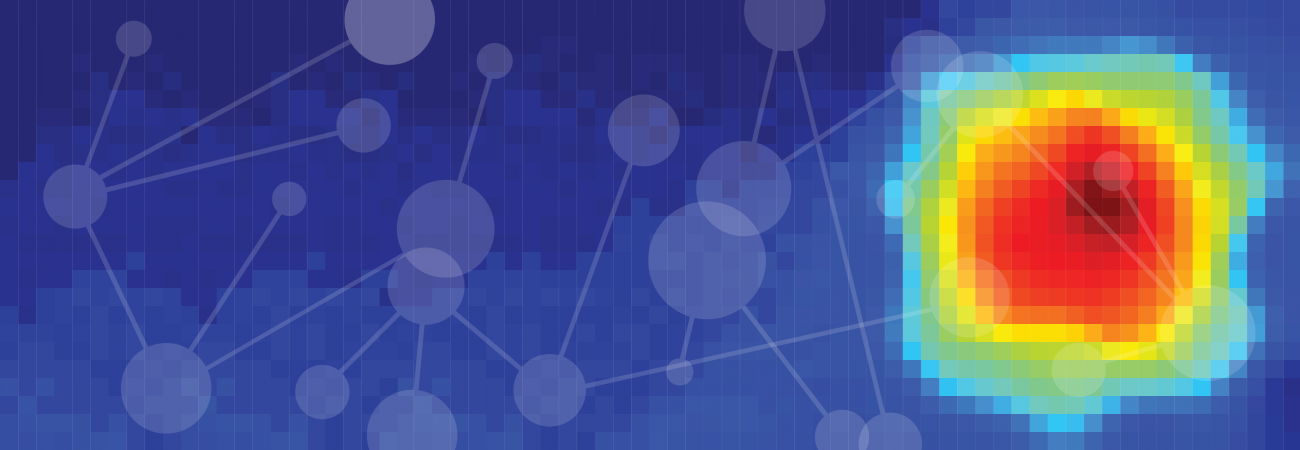ASU's Spatial Analysis Research Center (SPARC) hosted its second annual workshop, focused on the subject of Scale and Spatial Analytics, at Arizona State University on February 10 and 11, 2020. Please see below for workshop information, including video presentations from the workshop and position papers from participants.
About the workshop:
Spatial Scale is one of a small number of quintessential geographic topics that defines geography as a discipline. We talk about the scale of a map with expressions such as a ‘small scale’ or ‘large scale’ study. We refer to the scale of a study area, implying its spatial extent. We talk about some descriptors being scale-invariant (fractal dimension) while others are seriously affected by the extent to which data are spatially aggregated (modifiable areal unit problem). When focusing on the processes underlying spatial patterns, we frequently describe some processes as operating on a local, regional or global scale. Although we frequently refer to scale, what exactly do we mean by this term and how can we measure the spatial scale at which different processes operate? We have long recognized that the phenomena we observe are often the product of multiple processes operating at multiple scales, which raises a number of additional questions:
- What methodological developments are needed to accurately translate information across scales?
- How do decisions surrounding the scale of data and analyses (and the uncertainties that accompany those scales) impact our inferences about the world?
- In terms of processes, what exactly do we mean by scale and how do we measure it?
- Why is it useful to know the spatial scale at which different processes operate?
Although scale and geography have been virtually synonymous for centuries, it is timely to hold a brain-storming workshop on Scale and Spatial Analytics for several reasons:
- Spatial data are increasingly available at a very fine spatial (and temporal) scale
- Multi-scale analysis is now possible under various learning frameworks opening up the possibility of directly measuring the spatial scale at which different processes operate
- The three-dimensionality of the world we live on and in is increasingly recognized so that scale on the globe is of growing importance
This small and focused workshop focused on addressing these issues through a set of plenary presentations, lightning talks, and focused discussions with the intention of raising the profile of this important topic through the development of a research agenda and a set of follow-up activities.
Position papers
Participants
|
Sean Ahearn, Hunter College |
|
Sarah Bardin, Arizona State University |
|
Michael Batty, University College London |
|
Michael Branion-Calles, Arizona State University |
|
Kevin Butler, Esri |
|
Dylan Connor, Arizona State University |
|
Somayeh Dodge, UC Santa Barbara |
|
Mary Donovan, Arizona State University |
|
David Folch, Northern Arizona University |
|
Stewart Fotheringham, Arizona State University |
|
Amy Frazier, Arizona State University |
|
Charlie Frye, Esri |
|
Michael Goodchild, Arizona State University |
|
Elizabeth Groff, Temple University |
|
Peter Kedron, Arizona State University |
|
Jill Kelly, Harvard University |
|
Phaedon Kyriakidis, Cyprus University of Technology |
|
Nina Lam, Louisiana State University |
|
Wenwen Li, Arizona State University |
|
David Manley, University of Bristol |
|
Aryn Musgrave, Arizona State University |
|
Soe Myint, Arizona State University |
|
Trisalyn Nelson, Arizona State University |
|
Taylor Oshan, University of Maryland |
|
Yi Qiang, University of Hawaiʻi at Mānoa |
|
Matthew Quick, Arizona State University |
|
Mehak Sachdeva, Arizona State University |
|
Ethan Shavers, US Geological Survey |
|
Patricia Solis, Arizona State University |
|
Seth Spielman, University of Colorado |
|
Daoqin Tong, Arizona State University |
|
Matthew Toro, Arizona State University |
|
Libby Wentz, Arizona State University |
|
Levi Wolf, University of Bristol |
|
Jianguo Wu, Arizona State University |
|
Xiang Ye, SUNY Buffalo |
|
Enki Yoo, SUNY Buffalo |
|
Hanchen Yu, Arizona State University |
|
May Yuan, University of Texas at Dallas |
Organizing committee
The Scale Workshop is possible thanks to the hard work of the organizing committee, including: Michael Goodchild, UC Santa Barbara and Arizona State University; Stewart Fotheringham, Arizona State University; Wenwen Li, Arizona State University; Peter Kedron, Arizona State University; and Amy Frazier, Arizona State University.
Participant presentations
Sean Ahearn, Hunter College, and Somayeh Dodge, UC Santa Barbara
Michael Batty, University College London
Kevin Butler and Charlie Frye, Esri
Mary Donovan, Arizona State University
David Folch, Northern Arizona University
Stewart Fotheringham, Arizona State University
Amy Frazier, Arizona State University
Elizabeth Groff, Temple University
Jill Kelly, Harvard University
Phaedon Kyriakidis, Cyprus University of Technology
Nina Lam, Louisiana State University
David Manley, University of Bristol
Taylor Oshan, University of Maryland, and Levi Wolf, University of Bristol
Yi Qiang, University of Hawaiʻi at Mānoa
Ethan Shavers, US Geological Survey
Patricia Solis, Arizona State University
Seth Spielman, University of Colorado
Jianguo Wu, Arizona State University
Xiang Ye, SUNY Buffalo
Enki Yoo, SUNY Buffalo
May Yuan, University of Texas at Dallas
